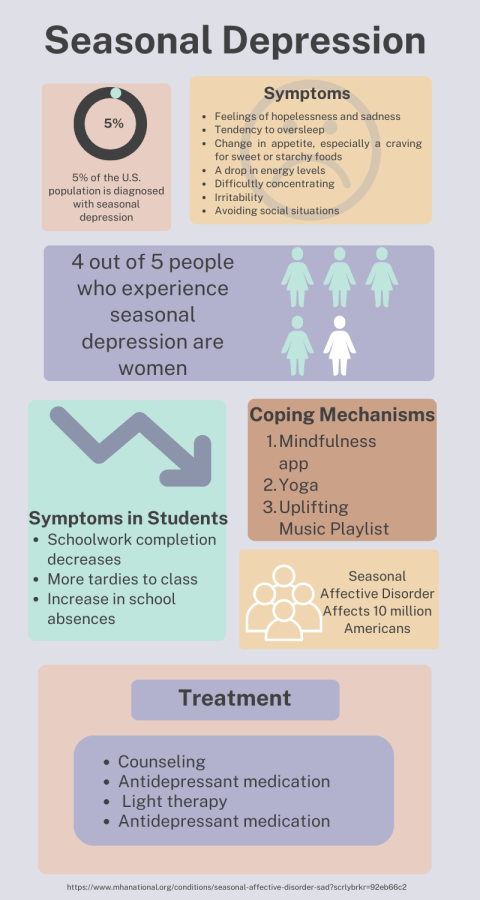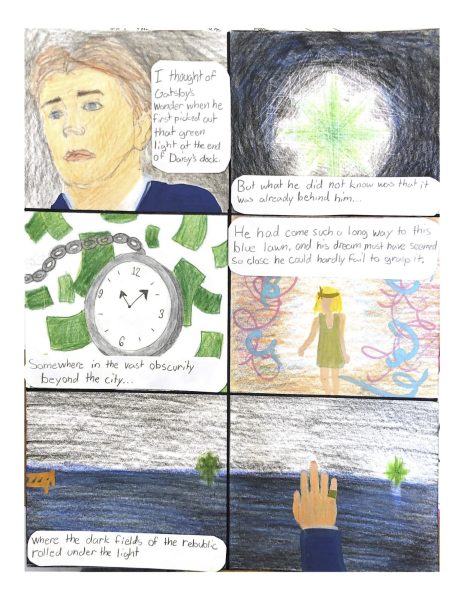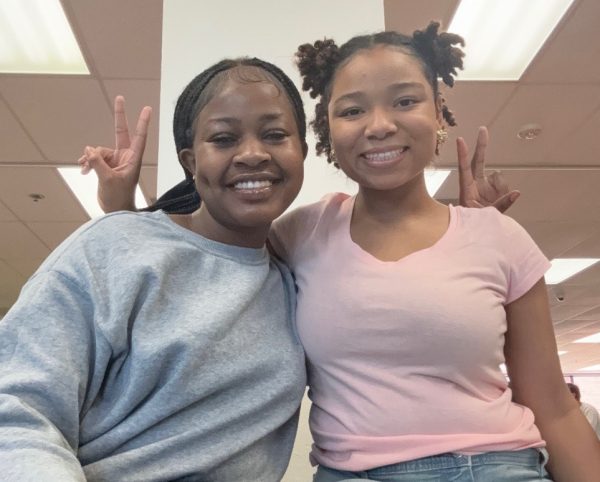Winter Blues and Everything Cool: A Story of How Seasonal Depression Affects Students
According to Mental Health America, 5% of the U.S. population is diagnosed with seasonal depression.
“BEEP, BEEP, BEEP.” A student reaches over to snooze the alarm.
Do I really want to get up today?
A feeling of dread washes over them as they think about the day ahead and they turn off the alarm to go back to sleep.
This fictional student is experiencing seasonal affective disorder (SAD), better known as seasonal depression, something many students may be familiar with.
According to Mental Health America, symptoms of SAD include a tendency to oversleep, irritability, avoidance of social situations, and feelings of hopelessness and sadness, also including but not limited to a drop in energy levels.
These symptoms are reality for many students.
“In the winter time, I just constantly feel inadequate and depressed,” junior Luke Bolter said.
According to attendance clerk Carrie Jones, attendance may be slightly worse in the winter. She could not confirm or deny that this is directly related to seasonal depression stating, “this is most likely due to illness.”
However, school counselor Megan Harrison says that students’ motivation has decreased recently.
“There have been a lot more students who have reported a lack of motivation recently, but I don’t know if that’s directly related to seasonal affective disorder,” Harrison said.
For Bolter, SAD has affected his school life.
“Sometimes I can’t get myself to do my work right that minute because I need space from life as a whole. I will also be late to school,” Bolter said.
SAD can show up in a variety of ways, and can commonly affect students.
“Typical symptoms of seasonal affective disorder are losing interest in activities, having low energy, issues with sleeping, and difficulty concentrating,” Harrison said.
According to Psychology Today, Seasonal Affective Disorder affects 10 million Americans.
Seasonal depression is commonly associated with insufficient vitamin D levels. With shorter and darker winter days, melatonin production in a person’s body is increased, causing people to feel sleepier in the winter months.
While Harrison hasn’t been formally diagnosed with SAD, winter months can be a struggle for her.
For students struggling with seasonal depression, Harrison recommends “a mindfulness app to help, along with yoga, and a light therapy lamp that I’ve found to be pretty effective,” she said. “Music is another great coping skill that I use, creating an uplifting playlist is helpful.”
More information about coping can be found on the Pattonville Virtual Wellness website.
Your donation will support the student journalists of Pattonville High School. Your contribution will allow us to purchase new equipment and cover our annual website hosting costs.






